Dafna H. Rand joined Brookings on June 24, 2025 as a senior fellow in the Foreign Policy program after serving in government as an assistant secretary of state and the director of foreign assistance. She previously served on the National Security Council and in a range of senior State Department roles under President Barack Obama, as well as on the professional staff of the Senate Select Committee on Intelligence. Her academic expertise—including her two books—focuses on the Middle East and North Africa.
Dafna recently spoke with Suzanne Maloney, vice president and director of Foreign Policy, about the Middle East, U.S. foreign policy leverage and influence, and America’s role in the world. She also explains how Brookings’ research is essential to the urgent project of building a more evidence-based, problem-solving approach to U.S. national security in the years ahead.
Suzanne Maloney:
Dafna, welcome to Brookings. We are thrilled that you are here. Can you share how you see the region today?
Dafna H. Rand:
First and foremost, the terrible war in Gaza must end as soon as possible. Overall, the region is at a crossroads. For the past 15 or so years, the conflict between Israel and Iran, as well as the looming threat of Iran’s nuclear program, has dominated the Middle East’s security order. Today, Iran is weakened, Israel has emerged as a more offensive player, and our alliances, with both Israel and the Gulf States, as well as with smaller states, are more important than ever. While I still believe that the United States is the most important global power exerting influence in the region, Russia, China, and others are rapidly investing economically and are interested in the region’s future. Meanwhile, the region has grown more internally diverse. There are many strong states, where the public has little opportunity for democratic expression, and then there are states that have suffered through terrible civil conflicts, such as Yemen, Syria, Lebanon, and Libya. Add to that the impact of an AI economy, climate change, and a new generation of tech-savvy youth—a lot is in flux.
Suzanne Maloney:
Why have you chosen to focus on the Middle East and North Africa?
Dafna H. Rand:
Personally, I find it a pleasure to work on the region because the people are so warm, capable, and full of great ideas. Professionally, since the 1990s, I have been intrigued by how U.S. decisionmaking directly impacts the region’s people. I hold out the hope that U.S. power and principle can positively shape the MENA region’s prosperity and peace over the next decade.
The other appeal for me is a puzzle: Why has the United States so often stumbled in its decisionmaking toward the region? We, U.S. policymakers, have not always gotten it right. In part, this is because MENA states, like so many others worldwide, are constantly changing. There is also a degree of groupthink when it comes to U.S. foreign policymaking in the Middle East, as well as a predilection for short-term thinking. Sometimes we cling to old assumptions or paradigms: for example, since 1973, we have assumed our main national interest in the Gulf was to maintain stable oil markets. This may be true, but it is far too simple a paradigm for our multifaceted, mature relationships across Gulf Cooperation Council states, especially as new industries emerge there. We now also have a strong set of defense relationships in the region.
And then there are decisions that turn out to be mistakes or oversights. The fact that Saddam Hussein was dodging international weapons inspectors even though he did not actually have weapons of mass destruction confused us, but it in no way excuses the disastrous decision to invade Iraq in 2003. And it would have been impossible to predict that local Tunisian protests would eventually lead to the ouster of President Mubarak in the much larger neighboring Egypt. Yet we should have understood the depth and scope of underlying public frustration—and that bread scarcity in 2010 across MENA, plus social media, could ignite this public discontent. Finally, no one expected Hamas to stage a carefully planned terrorist attack on Israel, killing over 1,000 Israelis. There is no justifying such a horrific attack. Perhaps only better intelligence could have thwarted it. Yet the fact that the United States was focused on regional peace deals by expanding the Abraham Accords ultimately marginalized the Palestinians. The Biden administration should have reinvigorated the Palestinian track and worked with new Palestinian voices to offer a positive, future-oriented alternative to Hamas’ nihilistic vision.
Suzanne Maloney:
Earlier in your career, your work focused on the Middle East and North Africa. More recently, you have had wider portfolios, first as the director of foreign assistance and then as the assistant secretary of state for democracy, human rights, and labor. Can you share some reflections from these experiences?
Dafna H. Rand:
I grew intellectually and professionally by working on other regions, whether migration issues in the Americas, economic statecraft across Africa, or the rise of new technologies intersecting with civil liberties and human rights concerns. As the director of foreign assistance—a position known within the State Department as “F”—I managed historic supplemental packages of assistance to Ukraine. Our team worked together to design new ways of managing our assistance—ensuring accountability to the taxpayers. The Biden administration mobilized U.S. allies not just in defense of Ukraine militarily but also to help Ukraine survive independently. Technical U.S. and allied teams worked with the government of Ukraine to wean the country from its dependence on Russian energy. Other teams used creative diplomatic and programmatic approaches to counter the cycle of corruption that has impeded Ukraine’s economic development.
Suzanne Maloney:
Can you talk a bit about your intended research agenda for your work at Brookings?
Dafna H. Rand:
Over the past 10 years, I have found two big themes emerging in my work—across the Middle East and beyond. First, the question of how we use our leverage and influence to end wars and otherwise shape partner and ally behavior. In the 21st century, wars persist for much longer than they did during the Cold War period. And the big powers in the world, including the United States, as well as multilateral institutions such as the United Nations Security Council, are having a challenging time ending these wars. In part, this is because there has been a diffusion of power in our multipolar world. Most parties to a conflict now have a global power patron. To some extent, ending wars is harder because U.S. partners may see these wars as existential when the United States believes that a cessation of hostilities is more strategic.
This leads me to the second theme I have observed and worked on since 2008, the question of U.S. security partners. After 9/11, we started working with a range of new partners to counter terrorism. Presidents George W. Bush and Obama increased the types and amounts of security assistance, building partnership capacity around the world. The Department of Defense entered the security assistance business, which for decades had largely been the domain of the Department of State. Today, our security partners dramatically vary in terms of sharing our level of capacity; many are much operationally weaker than traditional allies in Europe and Asia had been. Meanwhile, other partners may willingly take our security assistance but diverge from us when it comes to assessing threats and designing their operational end goals. As a result, it is harder to shape the “Clausewitzian thinking” of our partners—that is, how they marry the use of force with their political ends. We need more careful analytical thinking at the front end with these allies and partners in order to articulate what we expect and to what extent we will support their military efforts. And then we need diplomatic muscles to convey this thinking.
The Brookings Institution is committed to quality, independence, and impact.
We are supported by a diverse array of funders. In line with our values and policies, each Brookings publication represents the sole views of its author(s).
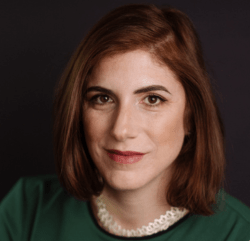

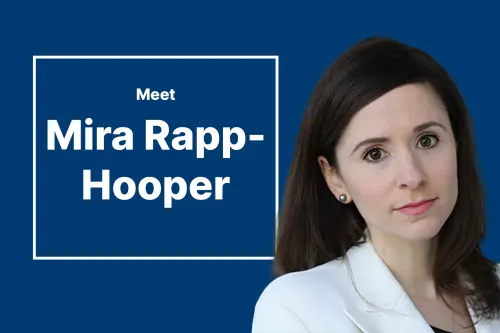
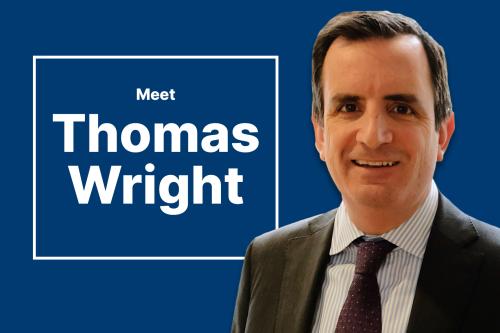
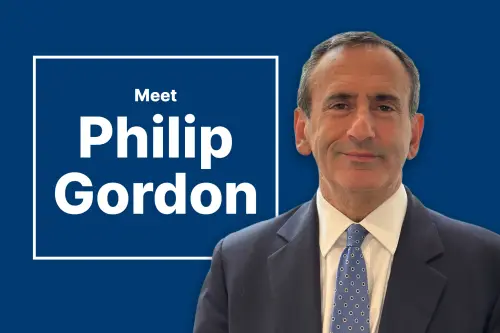
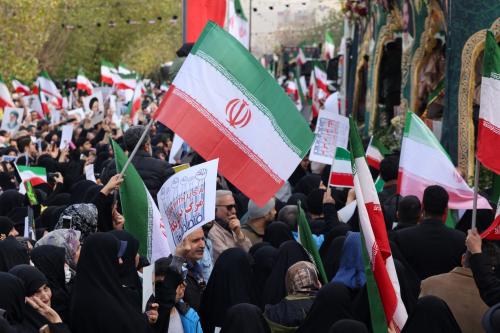

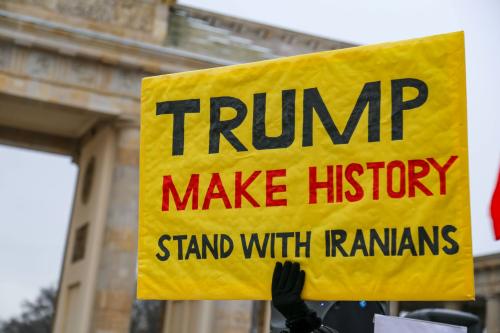
Commentary
A Middle East outlook with Senior Fellow Dafna H. Rand
October 8, 2025